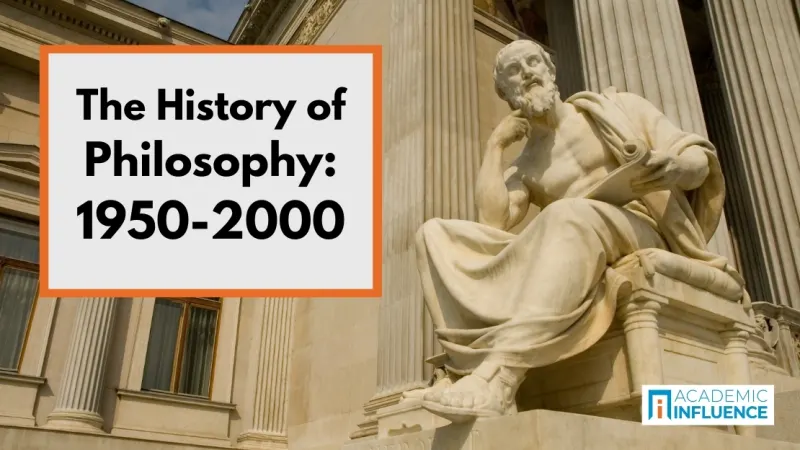A Brief History of Philosophy: 1950-2000

The study of philosophy in the latter part of the 20th century was marked by increasing specialization, as philosophers sought to keep the discipline relevant in a world that had been rapidly transformed by science and technology.
The advent of digital computers, for instance shifted the emphasis in areas such as philosophy of mind from simple behaviorism to what became known as “functionalism.” This shift resulted in a new model known as “the computational theory of mind” (CTM). In CTM, the mind is likened to a computer, and activities like cognition or thinking are treated as yet undiscovered computations run by the brain. The brain is characterized as the “wetware” (a conceptual equivalent to hardware) driving the algorithm supposedly undergirding human thought. In this way, computers began to exert a profound impact on core aspects of contemporary philosophy.
Importantly, the trend toward specialization in philosophy also led to a widely-recognized division between so-called analytic philosophy, which treated philosophical problems as technical problems requiring logical and mathematical analysis of language, and continental philosophy, which relied on more historical and “non-scientific” accounts of philosophy. Analytic philosophy dominated in England and largely in the United States, and many of the top programs by the turn of the century were solely or mostly analytic. Continental philosophy (so-named because its adherents were from the European continent, particularly in France and Germany) began with early phenomenologists like Edmund Husserl , who advocated a theory of philosophy using analysis of our internal experience of external phenomenon (i.e., observations) to early existentialist philosophers like his most influential pupil, Martin Heidegger .
Phenomenology largely petered out in the years after 1950 (though not entirely), and existentialism in the work of Heidegger, Jean-Paul Sartre , Maurice Merleau-Ponty , and others slowly declined in popularity as the world moved from the despair of two world wars to a period of growth and innovation.
Existentialists held that we are born into a world of radical freedom, which forces upon us the anxiety and “angst” of existing without a clear blueprint or essence. Hence the idea that “existence precedes essence,” as propounded by Sartre and others, where we should view the meaning of our lives as one of first existing (raw existence), and then by our freedom of choice, choosing our essence, or how we should be and live. The movement was extraordinarily influential in the early and mid-20th century, but by the century’s end, it was mostly seen as a historical movement.
Continental philosophy also ushered in the era of post-modernism, an amorphous movement that sought to understand institutions of power and even language and narrative itself as essentially an arbitrary creation, not connected to objective standards of truth. Post-structuralism influenced philosophy in the continental tradition, particularly in the works of Michel Foucault and Jacques Derrida , by insisting that established cultural structures discoverable by fields like psychology or anthropology do not exist, or are not useful because they are fraught with problems of bias, manipulation, and interpretation. Post-structuralism and its offshoot, post-modernism, played a major role in philosophy departments by the end of the 20th century, though many critiques of these movements would also surface in response.
Like the Western world itself, philosophy from 1950 to 2000 underwent major changes and adaptations. Though philosophers arguably lost a foothold in posing the basic questions typical of philosophy in ways that were understandable and helpful to non-specialists, this ear’s specialization of the subject may have also given us the tools to better reconcile the relationship between humanity, technology, and modernity.
Interested in contributing to a field that remains in a constant state of exploration? Check out these resources:
- How to Major in Philosophy
- 25 Most Influential Philosophy Books
- What Can I do With a Master’s in Philosophy
For additional study tips and tools, check out our full library of study guides for students.
Or find study tips, learning tools, tips for campus life and much more with a look at our Student Resources Headquarters.